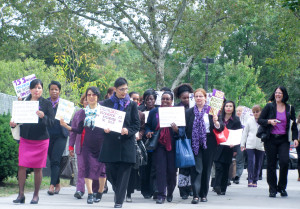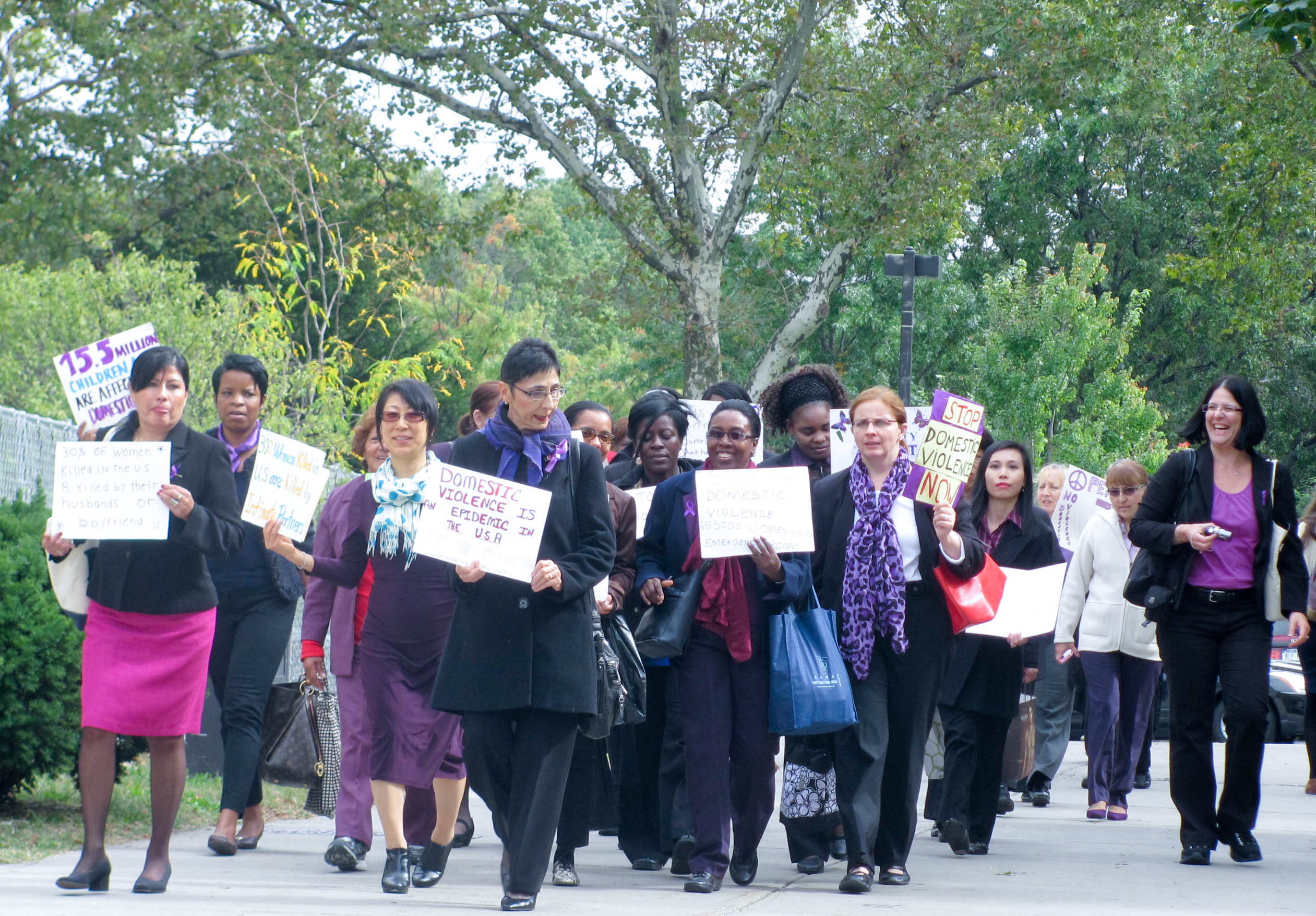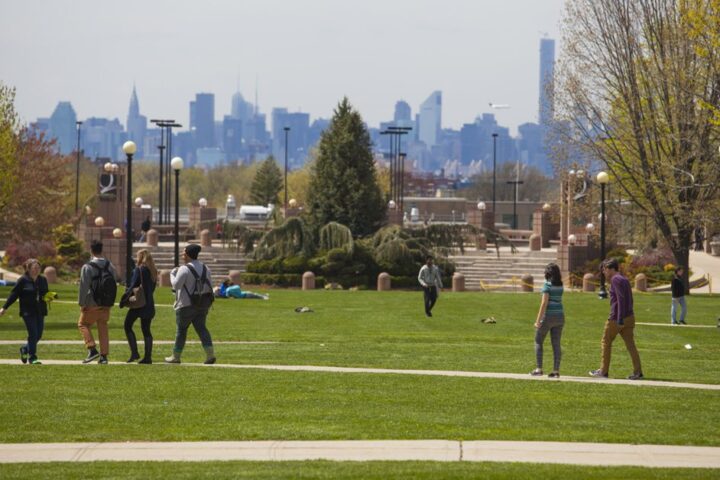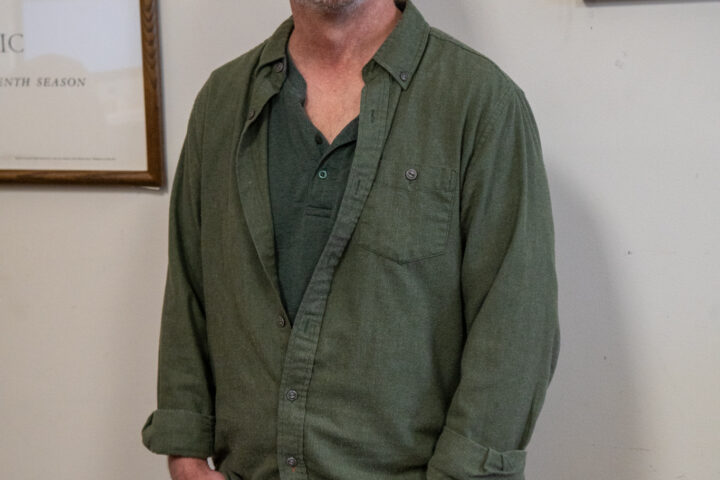
The entire month of October is designated for Domestic Violence Awareness Month and as such, events are occurring at Queens College relating to the issue of domestic violence.
Women & Work, which refer to themselves as a “free job-skills and life-management training program for women,” at QC, led a march on The Quad on Oct. 16 that raised awareness on domestic violence. Marchers carried signs with statistics and slogans on domestic violence drawing attention from students.
Domestic violence, also known as intimate partner violence, is defined as “the willful intimidation, physical assault, battery, sexual assault and/or other abusive behavior perpetrated by an intimate partner against another,” according to the National Coalition against Domestic Violence.
Furthermore, according to the FBI, intimate partner violence is the most underreported crime in the United States. Additionally, every year 15.5 million children are affected by domestic violence.
Carmella Marrone, founder and executive director of Women & Work, was among those who marched. She spoke on the message of the march and what it meant for those affected by domestic violence.
“We want to let people know there is hope and there is change. It’s up to us to change it, that’s why we walk today,” she said
The Center of Disease Control and Prevention has called domestic violence a “serious public health problem affecting more than 32 million persons in the United States.” That is more than 10 percent of the U.S. population.
“Domestic violence, according to the CDC, is an epidemic,” Marrone said. “We need to end that.”
During the march, women held signs with a purple ribbon clipped to their clothing. Assistant Director of Women & Work Taniamarie Nylund explained the significance of the color purple for the cause.
“Purple has historically been the color of the battered women’s movement. The purple ribbon is worn to show solidarity for victims and survivors,” she said.
“The cost of intimate partner violence exceeds $5.8 billion each year,” while, victims of domestic violence lose “almost eight million days of paid work,” according to the NCADV.
Students on campus were intrigued by the walk and asked the marchers about their cause.
“Several students approached members of the march for more information and there were also those who joined the march as we made our way across campus,” Tylund said. “Additionally, some students inquired as to what they could do personally to show their support for this cause.”
The NCADV states that one in six women and one in 33 men have “experienced an attempted or completed rape.”
Mary Miller, who participated in the march, is a domestic violence survivor. She spoke on the significance of the march and on stopping domestic violence.
“One woman told me it will never go away,” she said. “I explained to her that we’ve come a long way. We’re going to do this.”














